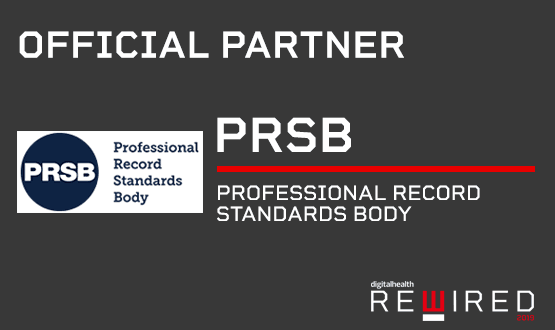The medic aiming for clinically meaningful record standards
- 7 November 2018

Afzal Chaudhry has been chief medical information officer at Cambridge University Hospitals NHS Foundation Trust, and so right at the centre of the country’s only deployment of Epic. But he’s recently added another string to his health informatics bow: vice-chairmanship of the Professional Records Standards Body (PRSB). On the face of if they may be quite separate roles but, as Owen Hughes reports, this consultant renal physician sees lot of parallels – and lots of new opportunities to make a difference.
It’s four months now since Afzal Chaudry took up the post of vice-chair at the Professional Records Standards Body (PRSB). In some ways his role at the body – which aims to ensure consistent standards for health records – might seem a long way from the day job. He’s a practising renal medicine consultant and chief medical information officer at Cambridge University Hospitals, having held the latter role for the past eight years.
For Chaudry, though, there are plenty of parallels. “I see a really strong synergy between my role at CUH and at PRSB,” he says. “The CUH role brings real-life clinical engagement along with examples of good practice or perhaps implementation issues.
“Meanwhile the PRSB role brings an opportunity to influence and shape the wider discussion and strategy and to draw together all of the relevant stakeholders, bringing clinical input into the digital and technological arena for the benefit of patients.”
Not merely a technical issue
One of Chaudhry’s main responsibilities as vice-chair is to further develop clinical engagement around – and support for – information sharing in health and social care.
This includes improving record standards. “It’s easy to think of standards as a compliance issue that needs to be understood by management or technical teams,” says Chaudry.
“In reality, information sharing is the backbone of good care, and affects every professional across NHS and social care, as well as the patients themselves.”
This is no easy feat: Chaudhry notes that lasting cultural change first require wide-reaching awareness of the importance of sharing information digitally in all corners of health and social care.
“That’s where the PRSB comes in,” he says.
“We are aiming to harness the skills and knowledge of the clinical professionals of all roles and grades to help define and implement standards that will ensure the right information can be shared in a timely manner.”
In addition to raising awareness among clinical and social care staff, Chaudhry will share lessons from his own personal experience of putting standards into action.
“Historically it has been a challenge to get digital healthcare initiatives truly integrated into the NHS and social care,” he explains.
“Implementing digital systems and processes across a wide range of services requires collaboration and culture change.
The need to be clinically meaningful
“Rather than system suppliers creating something for care professionals to use and telling them how to do it, we need clinically meaningful standards for the content and structure of care records that inform how suppliers design their systems.
“By liaising with everyone involved in a person’s care, we can determine exactly what information needs to be shared and how it should be recorded.”
At a fundamental level, Chaudhry believes standards for information sharing will improve basic care and patient safety, as well as help reimagine how the NHS provides care for a population living longer with more complex conditions.
“Studies show that at least 33% of errors at patient handover are the result of communication failures,” he reports.
“The pressures on the system make the traditional ways of delivering care unsustainable. We are now developing alternative ways of caring for people in the community and at home, and if we are going to offer the safest and best quality care, good communication and integration between services are absolutely essential.”
A data treasure trove
Cambridge represents a veritable treasure trove of data, owing to its status as a Genomics Laboratory Hub and a national Health Data Research UK site.
Chaudhry believes this presents innumerable opportunities for the development of new technologies that can tackle some of the challenges faced by today’s healthcare workers. Yet to harness this data he says there must first be a move towards standardisation.
“The availability of all of this data opens up a multitude of avenues for the development and refinement of technologies to bring truly personalised care within the reach of every patient and their supporting clinicians.”
“However, what is increasingly clear is that for us as a wider healthcare system to really take advantage of these opportunities, there needs to be a strong move towards the use of clinically meaningful standards for both clinical content and clinical document structure.
“Without these, the analyses of the data along with the subsequent derived benefits will be fraught with difficulty or even be impossible to complete and interpret in a safe and clinically meaningful way. PRSB’s role here is therefore a crucial one.”
The PRSB is an official partner of Digital Health Rewired, the new leadership summit, conference and exhibition designed to connect health IT leaders with the latest digital health innovations. Admission to Digital Health Rewired is free to all NHS and public sector employees – register now.






1 Comments
A significant proportion of medical records are worthless or, worse than worthless, positively misleading, for reasons that have no relation to Professional Records Standards. The problem cannot be addressed by Professional Records Standards because it is the result of poor clinical practice and/or dishonesty of the clinician, who either does not listen, does not recognise what is presented to him/her, or is blinded by specious medical dogma. Very often, the only person who is in a position to identify what is wrong with the record is the patient. Yet patients, who, I should have thought, are clearly stakeholders, are denied the right to control what records are shared with whom. The DHSC and the entire NHS are resolutely deaf to any protests or objections about this, even from some 2.4 million patients, and are willing to lie and to contravene data protection law in order to illegally overrule objections from patients. The latter cannot even exercise their legal right (under the GDPR) to judicial remedy, when they have failed to obtain fair treatment by any other means, because all solicitors specializing in the relevant area of law are working for the NHS and to represent a patient against the NHS would involve a conflict of interests. The Ministry of Justice see this as not their problem, and the DHSC think that the patient’s local Citizen’s Advice Bureau should deal with it. In other words, the DHSC is pleased to abuse their political power because they are in a position to do so. What they, and everyone colluding in this outrage are doing is removing from NHS patients the power to protect themselves from bad doctors, whose malign influence is immeasurably extended through the indiscriminate sharing of medical records. There are many very fine clinicians in the NHS, but there are a significant number of the other kind. With respect, Dr Chaudhry’s ideal world will never exist and the PRSB will do nothing to create it while the NHS bullies and disempowers its patients.
Comments are closed.